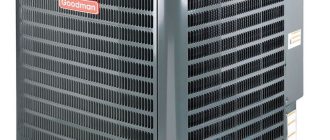
What speed is AC better than Windows?
When it comes to speed, there are times when AC is simply better than Windows. Whether you’re talking about air conditioning or alternating current (AC) in electrical systems, both of these ACs can outshine Windows in terms of performance.
When the hot summer months roll in, there’s nothing quite like the relief of turning on your AC and feeling the cool air rush in. Air conditioning has the power to quickly and efficiently cool down a room, providing a comfortable environment in which to relax or work. In this regard, AC is undeniably faster and more efficient than opening a window and relying on the breeze to bring relief.
Similarly, when it comes to electrical systems, AC has its advantages over DC, or direct current. AC power is able to travel long distances with minimal loss of energy, making it ideal for powering homes and businesses. Windows, on the other hand, are not designed for this purpose and cannot match the speed and efficiency of AC when it comes to transmitting electricity.
In conclusion, when it comes to cooling down a room or transmitting electricity over long distances, AC is the better and faster option compared to relying on Windows. Whether it’s air conditioning or alternating current, AC has the power to provide quick, efficient, and reliable performance that Windows simply cannot match.
AC versus Windows: A Comparative Analysis
When it comes to speed, AC has proven to be better than Windows in certain scenarios.
AC stands for air conditioning systems, which are designed to cool or heat indoor spaces. These systems are known for their ability to quickly adjust the temperature to the desired level, providing a comfortable environment in a matter of minutes.
Windows, on the other hand, refers to the operating system developed by Microsoft. While Windows is known for its efficiency and versatility, it can sometimes be slower than AC in certain situations.
In terms of speed, AC systems have the advantage when it comes to cooling or heating a room. With powerful fans and advanced temperature control mechanisms, they can quickly bring down or raise the temperature, depending on the needs of the user.
In contrast, Windows operating systems may take some time to boot up or load certain applications. This is especially true in older or less powerful computers that may struggle to handle resource-intensive tasks.
However, it is important to note that the speed of AC and Windows can vary depending on various factors. The efficiency of the AC system, the size of the room, and the computer’s hardware specifications are just a few examples of the factors that can influence their performance.
In conclusion, while AC systems are generally faster than Windows in terms of cooling or heating a room, the speed of both AC and Windows can be affected by various factors. It is important to choose the right AC system and optimize your computer’s performance to ensure the best speed and efficiency.
History of Air Conditioning and Windows
The history of air conditioning and windows dates back to ancient times. Ancient civilizations, such as the Egyptians and Romans, had rudimentary methods of cooling their indoor spaces. They would use materials, such as clay, stone, and even water, to provide better insulation and reduce the heat inside their homes.
However, it was not until the 20th century that air conditioning and windows truly evolved and became more efficient. In 1902, Willis Carrier invented the modern air conditioning system, which revolutionized the way people cooled their homes and workplaces. This invention made windows less crucial for temperature control, as air conditioning could provide better and more precise cooling than opening a window.
Windows, on the other hand, have always played an essential role in ventilation and providing natural light. Before the invention of air conditioning, windows were the primary source of fresh air and cooling in buildings. Opening a window allowed air to circulate and regulate the indoor temperature. However, this method was less effective in extremely hot climates or crowded urban areas, where opening a window meant letting in more heat and noise.
- Over time, windows have undergone various improvements to enhance their insulation properties. Double-glazed windows became popular, as they provided better thermal insulation and reduced noise infiltration.
- Despite these advancements, air conditioning remained the preferred choice for cooling indoor spaces in areas with high humidity or extreme heat.
- With the advancements in technology, air conditioning systems have become faster and more efficient, offering better cooling capabilities than opening windows.
In conclusion, the history of air conditioning and windows is a story of technological progress and the continuous pursuit of better cooling solutions. While windows still play a crucial role in providing natural light and ventilation, air conditioning has become the go-to option for faster and more efficient cooling in many regions.
Efficiency of Air Conditioning and Windows
When it comes to cooling a space, air conditioning (AC) and windows play crucial roles in maintaining the desired temperature. Both AC systems, including central and window units, and windows themselves can contribute to the efficiency of a cooling system.
While AC is primarily responsible for regulating the temperature indoors, windows also play a significant role. Windows can either help to cool down or heat up a room, depending on various factors such as sunlight exposure and insulation. Properly insulated windows can prevent heat from entering during hot days, reducing the load on the AC system and making it work more efficiently.
On the other hand, if windows are poorly insulated or exposed to direct sunlight for extended periods, they can contribute to the heat gain inside the room. This puts additional pressure on the AC to cool down the space, resulting in higher energy consumption and reduced efficiency.
In some cases, when the outside temperature is cooler than the desired indoor temperature, relying on natural ventilation from open windows can be a better option than using AC. This can help save energy and reduce electricity bills. However, it is important to consider factors such as outdoor air quality and noise levels before deciding to rely solely on windows for cooling.
In summary, the efficiency of both AC and windows is essential in maintaining a comfortable indoor environment. Properly insulated windows can help reduce the load on the AC system, while natural ventilation through open windows can be a better option in certain situations. Understanding the interaction between these two elements can help optimize cooling efficiency and save energy.
Impact on Energy Consumption
When it comes to energy consumption, air conditioning (AC) is usually considered to be better than windows. AC units are designed to be energy efficient and can cool an entire room or building using less power compared to opening windows. This is especially true in hot climates where opening windows can let warm air in, causing the AC to work harder to maintain a comfortable temperature.
In addition, AC units often have energy-saving features, such as programmable thermostats and sensors that can detect when a room is empty, allowing the unit to automatically adjust the temperature or turn off when not needed. This helps to further reduce energy consumption and lower utility bills.
On the other hand, opening windows for ventilation can increase energy consumption, especially if the outside air is hot or humid. In such cases, the AC may need to run longer and work harder to counteract the effects of the outside weather. Additionally, open windows can let in dust, pollen, and other allergens, which can impact indoor air quality and potentially affect the health of occupants.
Overall, for maintaining a comfortable indoor environment while minimizing energy consumption, AC units are often a better choice compared to opening windows. Not only do they have better energy efficiency, but they also provide more control over the temperature and air quality. However, it is important to consider factors such as climate, insulation, and personal preferences when determining the most efficient and effective cooling solution for a specific situation.
| Designed to be energy efficient | Can let in hot or humid air |
| Programmable thermostats and sensors | Increased energy consumption |
| Can automatically adjust temperature | Dust, pollen, and allergens can enter |
| Provides control over air quality | Less control over temperature |
Environmental Factors
When it comes to better speed, there are several environmental factors that can affect the performance of AC compared to windows.
- Temperature: AC is faster than windows in hot weather conditions since it can quickly cool down the room, providing immediate relief from the heat.
- Humidity: AC is also faster than windows in humid environments as it can help reduce moisture in the air, making the room feel more comfortable and less stuffy.
- Air Quality: AC can provide better speed than windows in areas with poor air quality, as it can filter out pollutants and allergens, improving the overall air quality in the room.
- Noise: AC can be faster than windows in noisy environments, as it can help drown out external noises, providing a quieter and more peaceful environment.
- Insulation: Proper insulation can also contribute to AC being faster than windows, as it helps prevent the transfer of heat or cold air, allowing the AC to maintain the desired temperature more efficiently.
Considering these environmental factors can help determine when using AC would be a better option in terms of speed compared to windows.
Cost Comparison
When it comes to speed, AC is typically better than Windows. AC systems are often more efficient and can cool a room faster than traditional window units. This can result in lower energy bills and a more comfortable living environment.
Maintenance Considerations
When it comes to maintenance considerations, there are a few factors to consider when choosing between AC and Windows.
Firstly, windows generally require more maintenance compared to AC systems. Windows need to be cleaned regularly to ensure they remain clear and allow maximum light into a room. They can also become dirty and may require repainting or refinishing over time.
On the other hand, AC systems require less maintenance. They simply need to be cleaned and have their filters replaced regularly to ensure optimal performance. This can be done relatively quickly and easily, making AC systems a better choice for those looking for low-maintenance options.
In terms of speed, AC systems also have an advantage. Windows can be slow to open and close, especially if they are old or poorly maintained. AC systems, on the other hand, can quickly provide cool air with just the click of a button.
In conclusion, when considering maintenance, AC systems are a better choice as they require less upkeep and provide faster cooling compared to windows.
Noise Levels
When it comes to noise levels, AC units are generally better than windows in terms of minimizing noise. AC units are designed to be relatively quiet, especially newer models that utilize advanced technology to reduce noise. On the other hand, windows can let in external noise from the surrounding environment, such as traffic or loud neighbors.
One of the main advantages of AC units is that they can be placed outside the living space, away from bedrooms or living rooms, which further reduces noise. This is especially beneficial for light sleepers or those who value a quiet environment.
In terms of speed, AC units are also faster at cooling a room compared to windows. They are specifically designed to quickly cool the air and circulate it throughout the room, providing instant relief from the heat. Windows, on the other hand, rely on natural ventilation and may take longer to cool down a space.
| Minimize noise | Let in external noise |
| Can be placed outside | Rely on natural ventilation |
| Fast cooling | May take longer to cool down |
Temperature Control
When it comes to speed of cooling or heating a room, AC is better than windows. AC units have the ability to cool or heat a room much faster than opening or closing windows. With AC, you can easily adjust the temperature to your preferred level, providing quick comfort during extreme weather conditions.
AC units also have the advantage of better control over the temperature. Unlike windows, which rely on the outside environment for temperature regulation, AC units have their own thermostats and sensors that can accurately measure and adjust the room temperature. This ensures a more consistent and controlled indoor environment.
So, if speed and precise temperature control are important to you, AC is definitely the better option compared to windows.
Health Considerations
When it comes to our health, it is important to consider the impact that different factors can have on our overall well-being. In the context of AC versus Windows, there are a few health considerations that are worth noting.
AC, or air conditioning, can offer better indoor air quality, especially in hot and humid climates. It helps to filter out dust, pollen, and other allergens, which can be beneficial for individuals with allergies or respiratory conditions. Additionally, AC can help regulate the temperature and humidity levels, creating a more comfortable and pleasant living or working environment.
However, it is important to note that AC can also have some negative effects on health. Spending long periods of time in an air-conditioned environment can lead to dry skin, dry eyes, and respiratory issues in some individuals. AC can also worsen symptoms for individuals who already suffer from asthma or other respiratory conditions.
On the other hand, opening windows to let in fresh air can be a natural and cost-effective way to improve indoor air quality. It allows for better ventilation and can help eliminate stagnant air and odors. Fresh air can have a positive impact on our cognitive function, mood, and overall well-being.
However, there are situations where opening windows may not be the best option. For example, in areas with high pollution levels, opening windows can introduce pollutants and allergens into the indoor space, which can be harmful to our health. Additionally, in extreme weather conditions, such as during hot summers or cold winters, opening windows may not provide adequate temperature control and comfort.
Ultimately, the decision between AC and opening windows will depend on various factors, including climate, personal preferences, and health considerations. It is important to find a balance that works best for each individual to ensure a healthy and comfortable living or working environment.
Psychological Effects
The speed of air conditioning can have a significant impact on psychological well-being and comfort. When AC operates at a faster speed, it provides instant relief from hot and humid conditions, resulting in a better overall experience for individuals in the environment. The immediate cooling effect of AC can help reduce stress, increase focus, and enhance productivity. People tend to feel more relaxed and at ease in cooler environments, allowing them to perform tasks efficiently and comfortably.
In contrast, a slower AC speed can have detrimental psychological effects. The delayed cooling sensation may lead to frustration and irritability, especially during sweltering weather conditions. This can impact concentration levels and decrease overall cognitive performance. Furthermore, individuals may become more fatigued due to the discomfort caused by the lack of instant relief from heat and humidity.
Overall, the speed of AC plays a crucial role in creating a comfortable environment and has a direct influence on the psychological well-being of individuals. Faster AC speed offers immediate relief, reducing stress, improving focus, and enhancing productivity, while slower AC speed can result in increased frustration, irritability, and decreased cognitive performance.
Security Measures
Speed: One advantage of AC over Windows is its speed. AC is generally faster than Windows, allowing for quicker execution of tasks and improved overall performance.
Windows: While Windows does offer some security measures, AC is often considered more secure. Windows operating systems are more susceptible to malware and viruses, requiring additional security software to protect against these threats.
AC: AC provides built-in security features that help protect against unauthorized access and potential attacks. These measures include encryption, two-factor authentication, and secure boot. Additionally, AC has a stronger user authentication system, which adds an extra layer of security.
Overall, when it comes to security measures, AC offers a faster and more secure solution compared to Windows.
Aesthetics and Design
When it comes to aesthetics and design, AC is often considered better than Windows. AC units are typically sleek and modern in design, blending seamlessly with any decor. On the other hand, windows units can be bulky and obtrusive, detracting from the overall appearance of a room.
In terms of speed, AC units also tend to be faster than windows units. AC units are designed to cool a space quickly and efficiently, allowing you to enjoy a comfortable environment in no time. Windows units, on the other hand, may take longer to cool a room, especially if it is larger or poorly insulated.
Overall, if aesthetics and design are important to you, AC units are generally the better choice. They offer a sleek and modern look that can enhance the appearance of any space. Additionally, their speed and efficiency make them a popular option for those who want to quickly cool a room.
Longevity and Durability
When it comes to longevity and durability, AC is often the better choice over Windows. AC systems are built to withstand harsh weather conditions and are known for their durability. They are designed to last for many years, making them a reliable option for homeowners.
One of the reasons why AC is considered to be faster than Windows is its speed. AC systems are designed to provide efficient cooling, ensuring that your home stays comfortable even in the hottest months. The speed at which AC systems cool down a room is unparalleled, making it the preferred choice for those looking for quick and effective cooling.
AC systems also have the advantage of being able to regulate temperature more accurately. They come with advanced temperature control features that allow you to set your desired temperature and maintain it consistently. This ensures that your home remains cool and comfortable throughout the day and night.
Furthermore, AC systems are built with high-quality materials that can withstand wear and tear over time. They are designed to be durable and resistant to damage, making them a long-lasting investment for homeowners. With proper maintenance and care, an AC system can continue to cool your home efficiently for many years.
In conclusion, when it comes to longevity and durability, AC systems have the upper hand. With their better speed, efficient cooling capabilities, and robust construction, they are a reliable and long-lasting choice for homeowners.
Q&A:
When is AC faster than Windows?
AC is faster than Windows in situations where the air conditioning system can quickly cool down the room or area, while Windows may not provide the same level of cooling efficiency.
What are some factors that can make AC faster than Windows?
Several factors can make AC faster than Windows, such as the size and power of the air conditioning unit, the insulation of the room or area, and the ambient temperature outside. Additionally, proper maintenance and cleaning of the AC system can also contribute to its efficiency and speed.
Can AC be faster than Windows in terms of cooling down a room?
Yes, AC can be faster than Windows in terms of cooling down a room. While Windows are often used to create airflow and bring fresh air into a space, an air conditioning system can provide faster and more precise cooling by using refrigeration technology.
Is it always necessary to use AC instead of Windows for faster cooling?
No, it is not always necessary to use AC instead of Windows for faster cooling. In some cases, opening Windows and allowing natural ventilation can be a sufficient and energy-efficient method of cooling down a room. However, AC can be particularly useful in hot and humid climates or in situations where the outside air is polluted or uncomfortable.
Are there any disadvantages of using AC for faster cooling compared to Windows?
Using AC for faster cooling compared to Windows can have some disadvantages. AC systems consume electricity and can lead to higher energy bills. Additionally, some people may find the cold air produced by AC systems uncomfortable or drying to their skin and respiratory system. Therefore, it is important to find a balance and consider personal preferences and energy efficiency when deciding between AC and Windows for cooling.






